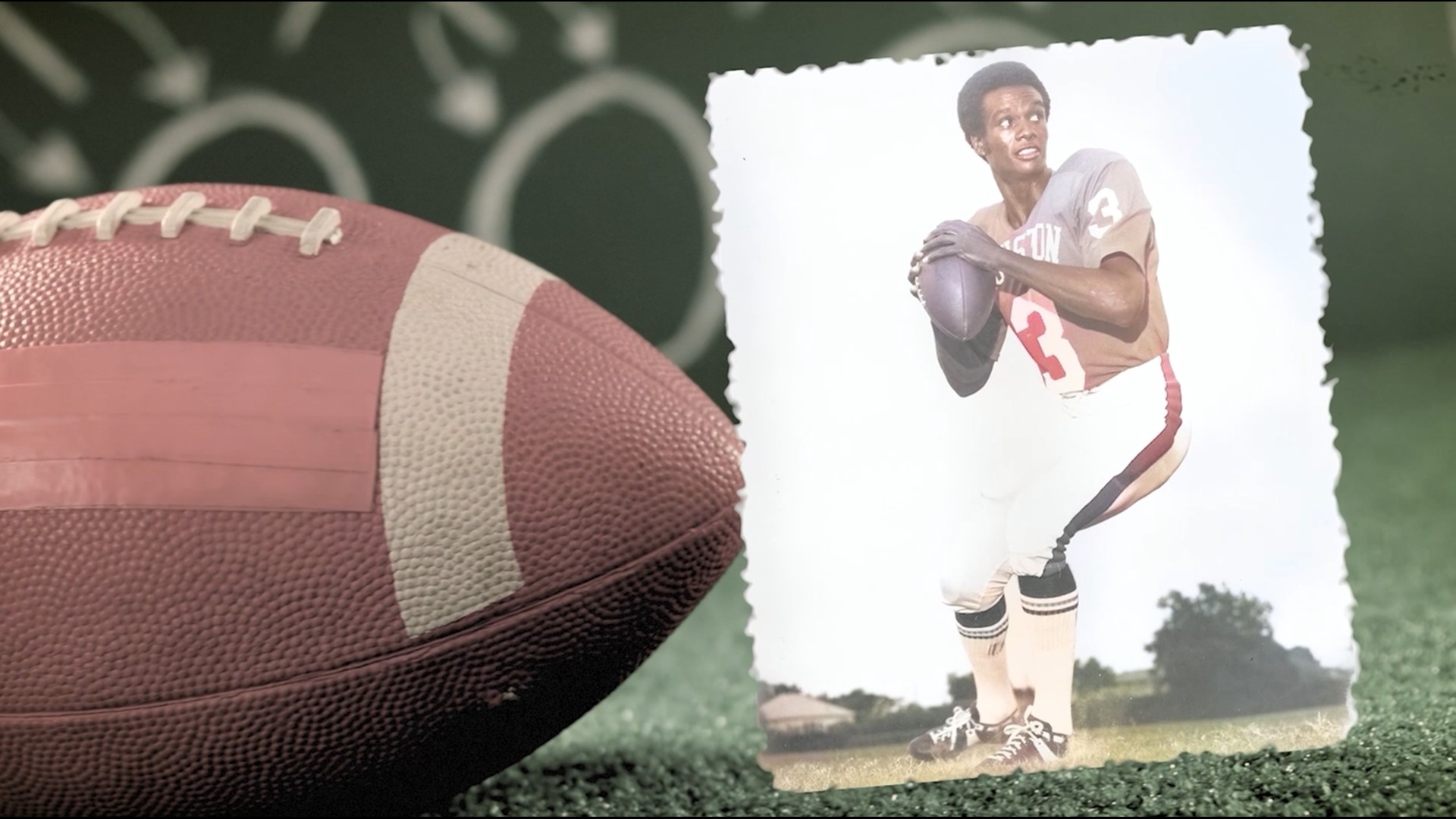MINNEAPOLIS — Outside Minneapolis, Minnesota, 2,000 miles away from Houston, a man proudly wears his Astros gear. He’s not a baseball player, though. He’s a former quarterback who’s traveled a long and difficult road to get to where he's at.
"I feel good about it," he said. "I'm smiling, but I feel like I'm crying at the same time, you know, I want to tear up. Because, you know, I know what I came through."
His name is D.C. Nobles and he’s not just any former quarterback, either. A star at the University of Houston, Nobles was the first Black quarterback in school history. And one of the first "in the South," he said.
Nobles, from Lufkin, was a slim 6 feet, 2 inches tall and 175 pounds.
"I was little, you know. I was strong, though," he said. "And I could run all day."
He also had cat-like quickness. His running ability parlayed with his throwing was one of the main reasons expectations were high in 1973 for the Cougars, coached by Bill Yeoman.
Proof? A report from August 1973 by WFAA-TV, courtesy of the G. William Jones Film & Video Collection at Southern Methodist University.
"The man under center for the Cougars will be the premier Black quarterback in the Southwest Conference, D.C. Nobles," announcer Jerry Park said in the report.
"Hopefully, we'll throw a little more than we did last season," Nobles said. "I haven't really talked to Coach Yeoman about the throwing part of our offense. I figure we will since he told me, that’s the best I’ve looked as a passer."
"I'll tell you what, D.C., I think, will wind up just about as good as we’ve had," Yeoman said.
Nobles later proved it. Houston posted an 11-1 record and secured a Top-10 ranking after dismantling Tulane in the Astro-Bluebonnet Bowl.
"Noble" is how his play was described in newspaper headlines. Unfortunately, during some away games in college, he was often called another n-word.
"In the stands and they were saying, 'Kill the (expletive),'" Nobles said of one trip to a game in Louisiana. "I got a postcard -- it said we're going to kill your (expletive) (expletive). My teammates cared. I know that. Those guys never saw me as a Black guy."
After his time at UH, Nobles tried playing in Canada and in the NFL. When he earned a place in the World Football League for the Houston/Shreveport franchise, the league flopped. Pro football at that time also had a problem with quarterbacks who looked like D.C.
"Like a lot of quarterbacks, you probably came along at the wrong time," KHOU 11’s Jason Bristol, who was in Minnesota in October for the Houston Astros’ playoff series against the Twins, said to Nobles.
"Yeah, it's a different story, for real," Nobles said. "I try to tell these guys today I say, you know, you talk about Michael Vick and Vince Young and those guys, man, I was doing that way back then."
While Nobles can now find some humor in the history, the problem spiraled into a bigger one: drug abuse.
"Yeah, the dark side to my life was I got addicted to cocaine," he said. "And I was out there a long time in my addiction. And I wanted some help and didn't know where to get it."
After his football dreams faded, it took Nobles years to confront the harsh reality of addiction.
"I think being dejected and rejected by not being able to play took me to the drugs," he said.
And that’s how he ended up in Minnesota.
"Somebody told me, Minnesota looks out for people,” he said.
He went for treatment at The Micah House in Minneapolis and a facility named Turning Point.
"I was already clean. I had stopped using all my own. But I wanted to know the scientific reason why I was using, I wanted to know what was going on in my brain," he said.
He never left the state -- nor the facilities.
Because, almost six years later, Nobles said, he works for Turning Point. The ex-quarterback is once again connecting with people.
"I've brought 30 people from Houston," he said.
Eventually emerging from the depths of substance abuse, Nobles' Hail Mary has been answered.
"And I think I'm doing what God wants me to do. And, and I'm happy with it, you know," he said.

